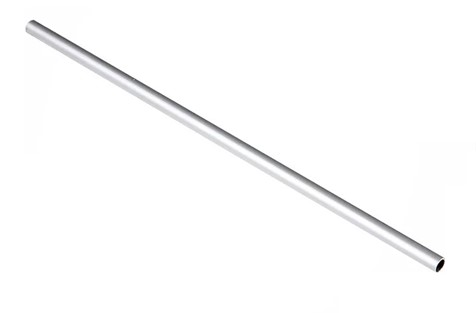Foreign Ministry explained Russia's decision to withdraw from the "corruption" convention of the European Union

RUSSIA has decided to leave the Group of States against Corruption (GRECO) and denounce the Council of Europe Criminal Law Convention on Corruption due to discrimination against the country within the organization. This was reported to RBC in the Department of Information and Press of the Russian Foreign Ministry.
“In March, by decision of the Committee of Ministers of the Council of Europe, the membership of the Russian Federation in the group was terminated, with the exception of the latter monitoring the fulfillment by our country of obligations arising from the Convention. At the same time, Russia is deprived of the right to participate in the discussion of country reports and the right to vote,” the Foreign Ministry said. At the same time, Russia, being a party to the document, consistently introduced the provisions of the convention into its legislation and contributed to its improvement.
The ministry clarified that due to the unacceptability of such conditions for Russia and to prevent discrimination, the Foreign Ministry suggested that the government denounce the Convention and withdraw from GRECO. The government submitted a proposal to the president to withdraw from the document the day before, on December 22.
Interfax learned about Russia's withdrawal from the "corruption" convention of the European Council Politics
Russia, despite the decision, retained "commitment to the implementation of obligations under other relevant international treaties" in which it participates. As an example, the Ministry of Foreign Affairs cited the UN Convention against Corruption.
In March 2022, by decision of the Council of Europe, Russia's membership in GRECO was terminated, although the organization continued to monitor Russia's fulfillment of obligations under the Convention, the Foreign Ministry said in a statement. At the same time, the country was deprived of the right to vote and participate in the discussion of the reports. In addition to Russia, the GRECO group includes 49 states.
The Convention was signed on behalf of the Russian Federation in Strasbourg on January 27, 1999. In particular, it contains provisions on the criminalization of acts of corruption and regulates the issues of legal assistance and extradition. As specified in the Foreign Ministry, the mechanisms laid down in its charter ensured effective monitoring of the implementation by member countries of anti-corruption standards of the Council of Europe without prejudice to national interests.
Read on RBC Pro Meta * in the register of extremist organizations: how to react to companies The era of Slack and Uber has passed: which startups investors are now shunning The child is constantly biting. How a Parent Can Break This Habit End of Subsidized Mortgages:In March, Russia also withdrew from the Council of Europe, after 26 years of membership. On February 25, the day after the start of the Russian military special operation in Ukraine, the organization restricted Russia's rights in the organization and in the Parliamentary Assembly of the Council of Europe.
The Russian Foreign Ministry explained the decision to withdraw from the council by the abuse of "their majority" in the committee of ministers by the EU and NATO states, which was a continuation of the "line of destruction" of this organization. Later, Vice Speaker of the Federation Council Konstantin Kosachev said that Russia intends to denounce the Charter of the Council of Europe, the European Convention on Human Rights (ECHR) and other conventions that do not meet the interests of the state.
Read together with it:
- Whitaker said "crushing" sanctions against Russia await approvalMatthew WhitakerA bill for "crushing" US sanctions against RUSSIA is in Congress and awaiting the green light, US Permanent Representative to NATO Matthew Whitaker said in an interview.BLOOMBERG . He added that US President Donald Trump supported the bill , proposing to include measures against Iran. According to Whitaker, Trump's efforts to secure peace in Ukraine have stalled, as Russian Preside...
- ФАО: мировые цены на продовольствие снижаются второй месяц подрядДжим Вайкофф Среднее значение Индекса цен на продовольствие ФАО в октябре составило 126,4 пункта, снизившись с пересмотренного значения в 128,5 пункта в сентябре, что представляет собой небольшое снижение в годовом исчислении и на 21,1% ниже пикового значения в марте 2022 года. Лидером снижения стал сахар: его субиндекс упал на 5,3% до самого низкого уровня с декабря 2......
- Analysts reported a drop in Russian oil shipments to India.In November, Russian oil shipments to India fell by 66% compared to the previous month due to "logistics tactics" that importers resorted to in anticipation of sanctions, ET reports. Moscow considers the measures illegal.Russian oil shipments to India fell 66% from November 1 to 17 compared to the same period the previous month, according to The Economic Times (ET), citing a report from analytics ...
- Telegraph написала о «потере связи с реальностью» ЗеленскимНа фоне политического и военного кризиса на Украине Зеленский заключает сделки по покупке оружия и газа, которые Киев не сможет себе позволить без финансирования ЕС, что остается под вопросом, пишет журналист The Telegraph Президент Украины Владимир Зеленский на фоне масштабного коррупционного скандала в стране, к которому причастны его сторонники, заключил несколько сделок о закупках в оборонном ...
- "Истинный полешук" Русый рассказал, как нарушил стиль работы на совещании у ПрезидентаМихаил Русый 18 ноября, Минск. Александр Лукашенко 18 ноября собрал совещание по темам развития районов Припятского Полесья и реализации соответствующей программы. Основным докладчиком на мероприятии выступил Михаил Русый - "истинный полешук", как назвал его Президент, уполномоченный представитель главы государства в Брестской области и председатель Постоянной комиссии по законодательству и госуда...
- Грэм заявил о движении «сокрушительных» санкций против России в конгрессеПосле одобрения Трампа законопроект о «сокрушительных» санкциях против России продвинется в конгрессе США, заявил сенатор Грэм. Меры собирались принять до июньского саммита G7, но их тормозили в том числе заявления президента Линдси Грэм Законопроект о санкциях против России «с благословения» президента [США Дональда] Трампа» продвинется в конгрессе, сообщил в Х автор законопроекта о «сокрушитель...
- A Russian citizen living at the Australian consulate complained about restrictions.Semyon Boykov, known by the nickname Aussie Cossack, has been living in the Sydney consulate since December 2022 due to assault charges. In 2023, he received Russian citizenship.Semyon Boykov, known by the nickname Aussie Cossack on the social network X and living in the Russian consulate in Australia since December 2......






























































